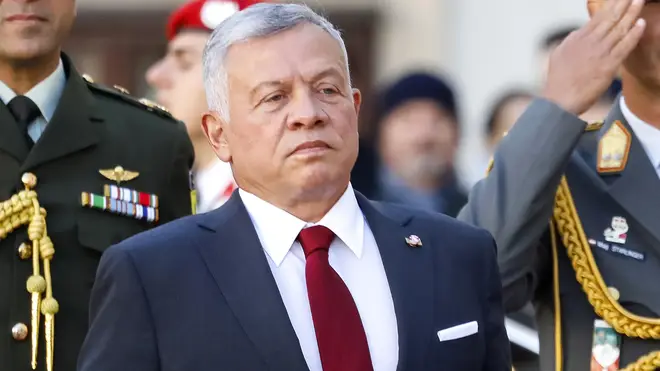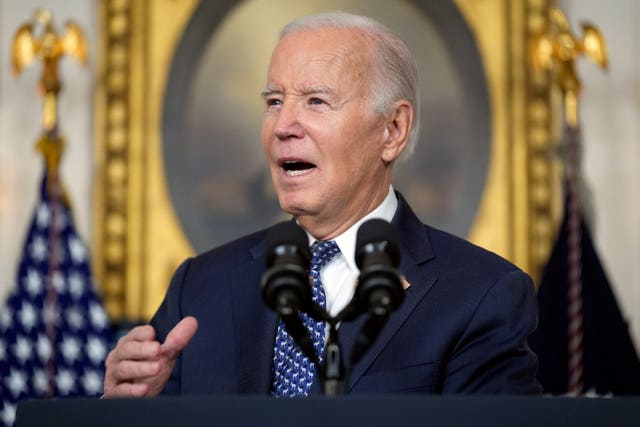
Clare Foges 6pm - 9pm
12 February 2024, 05:34

Monday’s meeting is the first between the allies since three American troops were killed last month in a drone strike against a US base in Jordan.
President Joe Biden is hosting Jordan’s King Abdullah II in Washington with the ongoing effort to free hostages in Gaza and growing concern over an Israeli military operation in Rafah among the topics on the table.
Monday’s meeting is the first between the allies since three American troops were killed last month in a drone strike against a US base in Jordan.
Mr Biden blamed Iran-backed militias for the fatalities, the first for the US after months of strikes by such groups against American forces across the Middle East since the start of the Israel-Hamas war.
The meeting with King Abdullah comes as Mr Biden and his aides are working to broker another pause in Israel’s war against Hamas in order to send humanitarian aid and supplies into the region and get hostages out.

The White House faces growing criticism from Arab-Americans over the administration’s continued support for Israel in the face of growing casualties in Gaza.
A senior US administration official said on Sunday that after weeks of shuttle diplomacy and phone conversations, a framework was essentially in place for a deal that could see the release of the remaining hostages held by Hamas in Gaza in exchange for a halt to fighting.
The potential for an agreement took up the majority of Mr Biden’s call on Sunday with Israeli Prime Minister Benjamin Netanyahu.
The official said the two leaders also had a significant back and forth about the potential expansion of Israeli military operations into Rafah and that Mr Biden reiterated US opposition to the idea under the “current conditions” while more than 1.3 million people are sheltering there.
The official said the Israelis “made clear they would not contemplate an operation” in Rafah without safeguarding the civilian population.
The official said the US is not sure there is a feasible or implementable plan to relocate civilians out of Rafah to allow military operations to take place.
Israel launched a series of strikes on Rafah on Monday, during which they freed two hostages held since the October 7 attack by Hamas.
Jordan and other Arab states have been highly critical of Israel’s actions and have eschewed public support for long-term planning over what happens next, arguing that the fighting must end before such discussions can begin.
They have been demanding a ceasefire since mid-October as civilian casualties began to skyrocket.